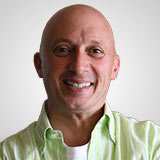We're always on the lookout for solid companies that are also buying back their stock. Generally, that's a sign that insiders are confident that there is big growth ahead, writes David Fried of The Buyback Letter.
Our recommendations center on a collection of stocks that we believe, as a group, will outperform the market. The Buyback Premium Portfolio is beating the S&P 500 by more than 44% since its inception in 2000.
Allied World Assurance Company Holdings (AWH)
We previously bought Allied World Assurance twice in 2009, and now it has risen to the top of our filters again.
Together with its subsidiaries, Allied World operates as a specialty insurance and reinsurance company in Bermuda, the US, Ireland, and the United Kingdom. It involves property and casualty insurance, as well as reinsurance lines of business, and is rated A (excellent) by A.M. Best Company.
Established in 2001, it maintains offices in Atlanta, Bermuda, Boston, Chicago, Dublin, Farmington, London, New York, San Francisco, and Zug, Switzerland.
In mid-February, the company reported a strong fourth quarter. Operating income was $94.7 million ($2.40 per diluted share) compared to operating income of $97.3 million ($2.24 per diluted share) for Q4 2010. Operating income for the year ended December 31 was $183.7 million ($4.63 per diluted share), compared to operating income of $397.8 million ($7.97 per diluted share) for the year ended December 31, 2010.
On the net income side, the company reported net income of $183.1 million ($4.63 per diluted share) for Q4 2011, compared to net income of $92.8 million ($2.13 per diluted share), for Q4 2010. Net income for the year ended December 31 was $274.5 million ($6.92 per diluted share), compared to net income of $665 million ($13.32 per diluted share) for the year ended December 31, 2010.
AWH has reduced its shares outstanding by a whopping 23.1% in the past 12 months.
Health Net (HNT)
We have dipped into insurer Health Net several times in the last couple of years, buying it in May 2009 and selling a month later for a quick 9.71% gain, buying again in September 2010 for a quick 8.36% gain, and in March 2011 for a 5% gain.
You’ll recall that Health Net, based in Woodland Hills, Calif., is among the nation’s largest publicly traded managed health care companies. The company’s health plans and government contracts subsidiaries provide health benefits to 6 million individuals through group, individual, Medicare, Medicaid, and TRICARE and Veterans Affairs programs.
Health Net’s behavioral health subsidiary, MHN, provides mental health benefits to some 5 million individuals in all 50 states. The company’s subsidiaries also offer managed health care products related to prescription drugs, and offer managed health care product coordination for multi-region employers, as well as administrative services for medical groups and self-funded benefits programs.
For the fourth quarter, Health Net reported earnings that crushed forecasts. The company’s revenue gains of 18% also contributed to the higher profit, as sales were up across the board, including from Medicare and Medicaid.
Earnings for the year are now expected to come in between $4.40 and $4.60 a share. That would beat the average forecast of $4.22 a share. Management has reduced shares outstanding by 13.4% in the last 12 months.
McGraw-Hill Companies (MHP)
Founded in 1888, the McGraw-Hill Companies is a leading global financial information and education company.
It announced last September its intention to separate into two public companies: McGraw-Hill Financial, a provider of content and analytics to global financial markets, and McGraw-Hill Education, an education company focused on digital learning and education services worldwide.
McGraw-Hill Financial's leading brands include Standard & Poor's Ratings Services, S&P Capital IQ, S&P Indices, Platts energy information services, and J.D. Power and Associates.
With sales of $6.2 billion in 2010, the corporation has 21,000 employees across more than 280 offices in 40 countries.
McGraw-Hill Education will continue to publish textbooks for the K-12 market, as the second largest publisher after UK-based publisher Pearson. Investors anticipate continued growth as McGraw-Hill Education exerts its global ambitions, publishes in more languages, digitizes content, and employs other strategies to stay on top.
McGraw-Hill has returned a fair amount of money to shareholders in the last few years, either through dividends or repurchases.
Subscribe to The Buyback Letter here...
Related Reading:
6 Stocks from a Quant Master's Strategy










